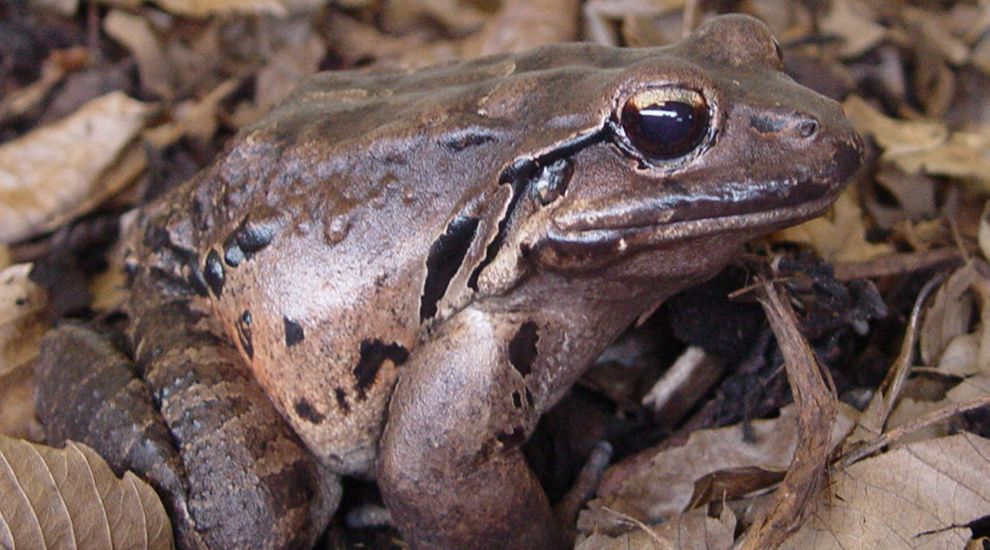

They survived a killer disease but the last two frogs left living on a Caribbean Island now need Durrell's help to keep their species alive in the wild.
Conservationists plan to reunite a male and a female mountain chicken living in different parts of a stream in Montserrat and hope to see a new generation of frogs hopping about this summer.
If they succeed it will be the first time the species have bred in the wild since 2009 when an outbreak of the deadly chytrid fungus disease wiped out all but these two little frogs on the Caribbean Island.
Durrell's Amphibian Programme Manager Jeff Dawson said: “My colleagues in Montserrat are going to be putting a lot of effort into trying to locate the male and female, he’ll start calling, it’s starting to rain, it’s the mating season and the female should be out feeding.
"We'll move the female up to the male's territory. At the moment they are at opposite ends of the stream and they haven't found each other. We'll have to do intensive monitoring for four or five hours a night. The chances are that the female might want to move back to her own territory.
"We hope that if she hears his calling, she’ll want to stay and hopefully they will mate.
“The really good thing for the future of the species is that these two aniamls have lived through this disease outbreak, why we don’t know, we can guess that they might have some inherent resistance to the disease and if this is the case, and they breed hopefully their offspring will have the same resistance which would be absolutely fantastic.”
The team plan to set up some extra artificial nesting sites in the male's territory to encourage breeding and hope to see between 10 and 80 little frogs by the end of August.
Jeff said: "Doing nothing is not really an option, if they don’t get together, there are options to bring them into captivity but the Best chance of them breeding is naturally in their natural habitat."
Comments
Comments on this story express the views of the commentator only, not Bailiwick Publishing. We are unable to guarantee the accuracy of any of those comments.